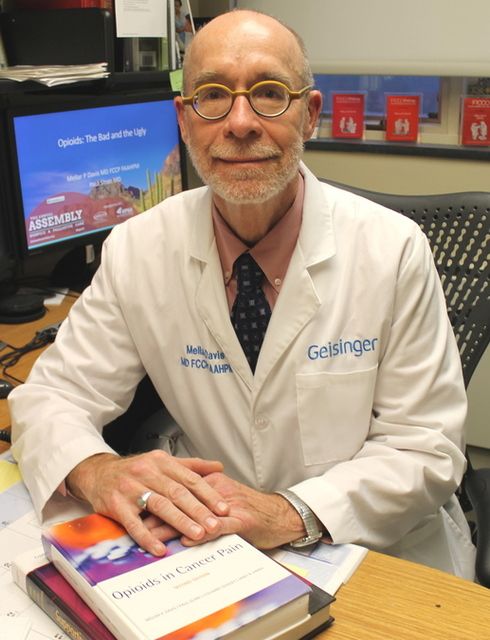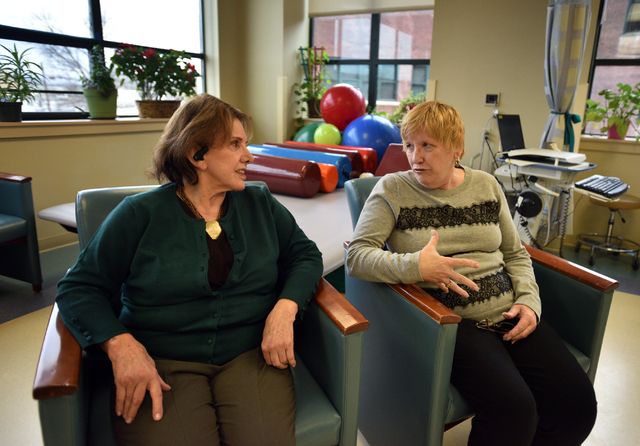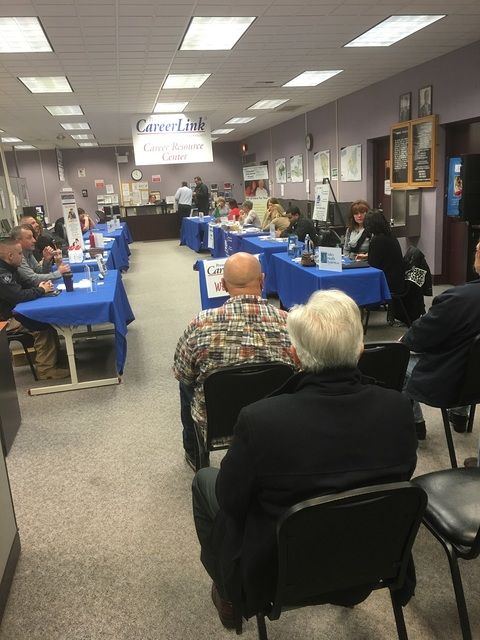Click here to subscribe today or Login.
Doctors within the Geisinger Health System suggests the use of opioid medication in treating chronic pain is ineffective and increases the risk of certain negative health factors including death.
Mellar P. Davis, M.D., and Zankhana Mehta, M.D., are palliative care physicians — they work to relieve suffering and improve quality of life in patients at any stage of illness. The doctors published a study — which reviewed around 200 regional and national studies that included up to 89,000 patients in each study — reporting opioid therapy is not the right answer for chronic pain patients.
Davis works primarily out of the Geisinger facility in Danville but is responsible for the development of palliative care at the Scranton and Wilkes-Barre campuses.
Davis said while the “poster child” for opioids is addiction, long-term opioid therapy carries with it a multitude of adverse effects.
“Putting the risks aside from addiction, you have the risks of infection, sleep disordered breathing, cognitive changes, depression and anxiety and hormone changes,” Davis said.
Perhaps the most significant finding is opioid therapy can reduce the body’s ability to dull pain resulting in additional pain.
“When we have acute pain, there are responses within the body that block that pain,” Davis said. “If that’s interfered with, it may actually result in sustained pain.”
Davis said continuing opioid treatment in a patient with chronic pain can cause the pain to continue and perhaps worsen instead of allowing it to resolve.
“In chronic pain, the brain is changed such that it is less responsive to opioids,” Davis said. “The original myth we had is that chronic pain is nothing more than ongoing acute pain, and that, we now know, is not the case.”
Davis said while opioid medication is helpful in treating acute (short-term) pain and terminal cancer, better options for patients with long-term pain include exercise, cognitive behavioral therapy, acupuncture, yoga and tai chi.
Clinical nurse specialist Dawn Snyder and clinical research coordinator Kelly Baylor treat patients in the GHS Multidisciplinary Pain Program, which encourages patients to take control of their own pain management and ween off opioid medications.
“We decided about three years ago that we would create a bio-psycho-social model of treatment,” Snyder said. “The reason is that chronic pain affects all aspects of life, physically, emotionally, spiritually and socially.”
Patients have access to clinical pharmacists, physical therapists, psychologists, social workers, dietitians and chaplains, and they can take part in activities like art therapy and gardening.
“It’s about what works for you and how you can integrate things into your life,” Baylor said.
Chuck Price, 51, of Bloomsburg has experienced chronic pain since 2000 from a series of back surgeries. Until he began MPP treatment, he was on an increasingly high dose of opioid pain relievers. A bad reaction to a change in medication made him seek new methods.
“When I went in for the first class and listened to them talk, I thought they were crazy,” Price said. “The prime aspect that worked the most for me was being active and exercising. When I started walking, I could barely get a mile. Now I’m walking 10 miles a day.”
Price said he’s reduced his medication by 90 percent and the little he takes offers him more relief than he’d ever had on larger and more frequent doses. His daily pain has been reduced from the 7 to 8 range on a scale of 0 to 10 to the 4 to 5 range.
“This program turned my life around,” he said.








